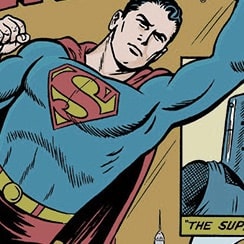Try GOLD - Free
The Smart Manager Magazine - January - February 2020

Go Unlimited with Magzter GOLD
Read The Smart Manager along with 10,000+ other magazines & newspapers with just one subscription
View CatalogSubscribe only to The Smart Manager
Cancel Anytime.
(No Commitments) ⓘIf you are not happy with the subscription, you can email us at help@magzter.com within 7 days of subscription start date for a full refund. No questions asked - Promise! (Note: Not applicable for single issue purchases)
Digital Subscription
Instant Access ⓘSubscribe now to instantly start reading on the Magzter website, iOS, Android, and Amazon apps.
Verified Secure
payment ⓘMagzter is a verified Stripe merchant.
In this issue
The cover theme of the January-February 2020 18th Anniversary Special issue is ‘Shifts Shaping Business’. R Edward Freeman, Professor at Darden School, University of Virginia, and Ben Freeman, a Principal of Stakeholder Media, explain how ethics and morality are the center of a revolutionary shift in business. Asif Upadhye, Director and Dark Knight, Never Grow Up, highlights the shift to happiness occurring in the workforce and what managers must do to keep up. David Moschella, author of Seeing Digital, dives into the nitty-gritty’s of the digital shift which is propelling businesses to the next phase of technology. Elsewhere in the magazine, a trio of interviews with Ashish Goenka, Director, Redbrick Offices; Sumit Lakhani, Chief Marketing Officer, Awfis Space Solutions; and Varun Chawla, Co-founder, 91springboard, offers an insider’s look at the co-working sector and its impact on the future of work.
The Smart Manager Magazine Description:
The Smart Manager, India's first world-class management magazine, was founded in 2002 by eminent business historian Dr Gita Piramal with Harvard Business School Dean, Prof. Nitin Nohria with the mission of updating managers and business practitioners in India with the latest thought-provoking strategic ideas from experienced, world-class managers, academics and consultants from across the globe. Over the years, the magazine has carried articles authored by illustrious management gurus such as the late CK Prahalad and Sumantra Ghoshal, Jack Trout, Ram Charan, Gary Hamel, Gay Haskins, Jagdish Seth and Lynda Gratton. We believe that "managers are the best teachers of managers" and most of our articles are written in the first person by top-tier CEOs such as Kumaramangalam Birla, Sunil Mittal, Aditya Birla, KV Kamath, Santrupt Mitra, Rajeev Dubey and S Ramadorai. We also have relationships with a number of B-schools around the world, apart from most top-level schools in India.
The Smart Manager hosts the Tata Consultancy Services Smart Manager Case Contest, the most prestigious competition of its kind in the Indian print media. The contest, with a cash prize of INR50,000 per issue, sees wide participation from national and international business managers and students.
The 'Smart" in The Smart Manager is an acronym for Strategy, Marketing, Analysis, Resources and Technology. Truly useful knowledge when you need it 24 x 365, year after year.
Recent issues

November-December 2019

September - October 2019

July - August 2019

May - June 2019

March - April 2019

January - February 2019

November - December 2018

September - October 2018

July - August 2018

May - June 2018

March - April 2108

January-February 2018

November-December 2017

September - October 2017

July-August 2017

May - June 2017

March/April 2017

January/February 2017

November-December 2016

September-October 2016

July-August 2016

May - June 2016

March-April 2016

January - February 2016

November-December 2015

September-October 2015

July-August 2015

May-June 2015

March - April 2015
Related Titles

Business Standard

Business Today India

Mint Mumbai

Outlook Business

Financial Express Delhi

DataQuest

Siliconindia - India Edition

Business Traveller India

BW Businessworld

The Business Guardian

Entrepreneur magazine

Auto Components India

CEO Insights

Cruising Heights

BioSpectrum Asia

Architect and Interiors India

The Machinist

Indian Economy & Market

Outlook Money

Mint New Delhi

Mint Bangalore

Mint Chennai

Mint Hyderabad

Mint Kolkata

Bakery Review

BANKING FINANCE

India Business Journal

Financial Express Mumbai

Capital Market

What Hi-Fi Sound and Vision India






















